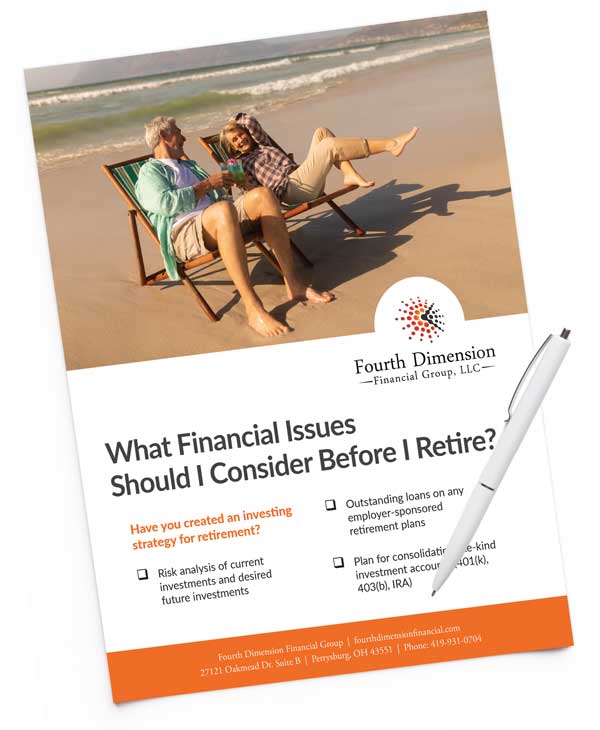
Most people probably don’t consider this, but the single largest expense every year for a successful retiree isn’t putting fuel in the RV or even medical costs; it’s taxes.
Between property, sales, and income taxes, the numbers can get pretty big pretty fast. Given this sneaky reality, tax planning has become an essential part of retirement planning for couples because it has the potential to help maximize net usable retirement income while minimizing overall tax liability. So, how does one go about doing tax planning leading into and through retirement?

Here are some ways tax planning can help a retired couple ease the tax burden.
Maximizing Retirement Income
Tax planning can help a retired couple maximize their retirement income by minimizing their tax liability. This can be achieved by utilizing tax-advantaged retirement accounts, such as Traditional or Roth IRAs, 401(k)s, and other employer-sponsored retirement plans.
Contributions to these accounts can reduce taxable income by deferring or even eliminating taxes, which can result in lower tax rates and taxes owed in retirement.
Managing Taxable Retirement Income
Retired couples can also manage their taxable income through tax-sensitive retirement income planning. One strategy is to delay taking Social Security benefits until Full Retirement Age (FRA) or later. For most retirees, that’s age 67. This can increase the benefit amount, and since not all of Social Security Income is taxable like an IRA or 401(k) withdrawal, delaying claiming Social Security can provide a higher income stream in retirement and reduce the amount of taxable income owed.
Another strategy is to manage withdrawals from retirement accounts strategically. By withdrawing from tax-advantaged accounts first, retired couples can minimize their taxable income and reduce their tax liability in the early years when most retirees are most active and spending more money than in later years. This strategy can also help preserve the tax-advantaged status of their retirement accounts for as long as possible.
Reducing Tax Liability Through Deductions and Credits
Retired couples can also reduce their tax liability through smart tax filing. One way to do this is by taking advantage of deductions and credits that are available to them. For example, retired couples can deduct medical and dental expenses that exceed 7.5% of their adjusted gross income.
Additionally, charitable donations can be deducted from taxable income, which can help reduce tax liability. Retired couples can also consider donating appreciated securities instead of cash to reduce their tax liability further. If donations and credits in a given year aren’t enough to exceed the Standard Deduction, consider bunching these donations into a single tax year to make itemizing more advantageous.
Minimizing Required Minimum Distributions (RMDs)
Retired couples who have tax-advantaged retirement accounts like IRAs, 401(k)s, and 403(b)s are required to take RMDs starting at age 73 and continue for life. These begin at roughly 4% of the value of a person’s tax deferred accounts, which can add up to big numbers over time. These distributions are taxable and can increase the couple's tax liability if they didn’t need to withdrawal this money to meet expenses. One strategy to reduce RMDs and taxes owed is to withdraw more than the minimum amount needed from their retirement accounts before they turn 73, but keep these extra withdrawals in a lower tax bracket than if they wait until 73. This can reduce the amount of their RMDs, and shave some of the edges off the total taxes owed over a lifetime.
Estate Planning
Finally, tax planning can also help retired couples with their estate planning. A well-designed estate plan can help minimize estate taxes and ensure that their assets are distributed according to their wishes. Strategies such as gifting, trusts, and charitable donations can be used to reduce the couple's taxable estate and minimize estate taxes.
It’s also important to work with beneficiaries of retirement accounts in order to educate them and plan for ways to minimize their tax burden upon receipt of these accounts. It may not be enough to simply manage the tax burden of a retiree when their loved ones can unintentionally cause a large tax bill for themselves that could have been avoided.
Tax planning can help retired couples maximize their after-tax retirement income, reduce their taxable income, reduce their tax liability, minimize RMDs, and plan their estates effectively. By working with a financial advisor and a tax professional, retired couples can develop a comprehensive tax plan that meets their unique needs and helps them achieve their retirement goals without giving Uncle Sam more than is necessary.
Providing estate planning and tax planning services to Northwest Ohio and Southeastern Michigan including the communities of Toledo, Bowling Green, Sylvania, Perrysburg, and Findlay.
Featured On








Fourth Dimension Financial Group
27121 Oakmead Dr. Suite B
Perrysburg, OH 43551
Phone: 419-931-0704
Email: dave@fourthdimensionfinancial.com





